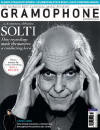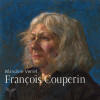Texte paru dans: / Appeared in:
*

GRAMOPHONE (11/2012)
Pour s'abonner /
Subscription information
Aparté
AP036

3149028016628 (ID228)
Reviewer: Philip Kennicott
Verlet’s new Livres, 40 years after her first recording
Go back to Bladine Verlet’s recordings of various Couperin Ordres from the late 1970s and you hear a distinct temperament at work: a strong and admirable flair for characterisation that gave a sense that each of these highly individual pieces lived in its own delicate, precious, individual sound world. The approach was broad and almost casual, a quick, intelligent limning of the basic contours of the work. You could imagine hearing Verlet live, in a smallish hall, transfixing her audience with a clear, unfussy sense of narrative. But ornamentation was never her focus nor her forte, and she wasn’t much given in the gentle swing, or inégalité, that often lifts these works from litle tone puzzles to coy and ethereal musical smiles.
Now a veteran player, and perhaps the last living representative of the generation that established the scholarly, modern approach to this repertoire, Verlet returns to Couperin and plays it in essentially the same style. She captures the richness of the material, the Balzacian catalogue of character and conceit that Couperin scholar Wilfrid Mellers suggested connected this music not just to the France of La Fontaine but France through the ages. Again, one wishes the ornaments were more fluid and natural rather than the little chirrups or tweets that seem somewhat haphazardly deployed. But it is fine playing, even so, more colourful and dynamic than Kenneth Gilbert’s complete set and in many places more exuberant than the more recent one Christophe Rousset.
In the l970s Verlet used different instruments, including a late 17th century harpsichord by Gilbert des Ruisseaux and another by Derek Porteous based on a 17th century instrument (the former somewhat constrained and rubbery, the later more piquant). Her choice, this time around, of the 1751 Henri Hemsch instrument yields a brighter, more aggressive sound (somewhat heightened by the recording level). But she makes the most of this robust, prismatic instrument, especially in some thickly scored passages, including the wonderful, harmonically peripatetic chords of the Passacaille from the Eight Ordre.
It seems strange but also very appropriate to hear harpsichord-playing that sounds wise and autumnal. We have advanced to this stage in the reinvention of the instrument and can now luxuriate in players who bring a lifetime of experience to the repertoire.
Cliquez l'un ou l'autre
bouton pour découvrir bien d'autres critiques de CD
Click either button for many other reviews


